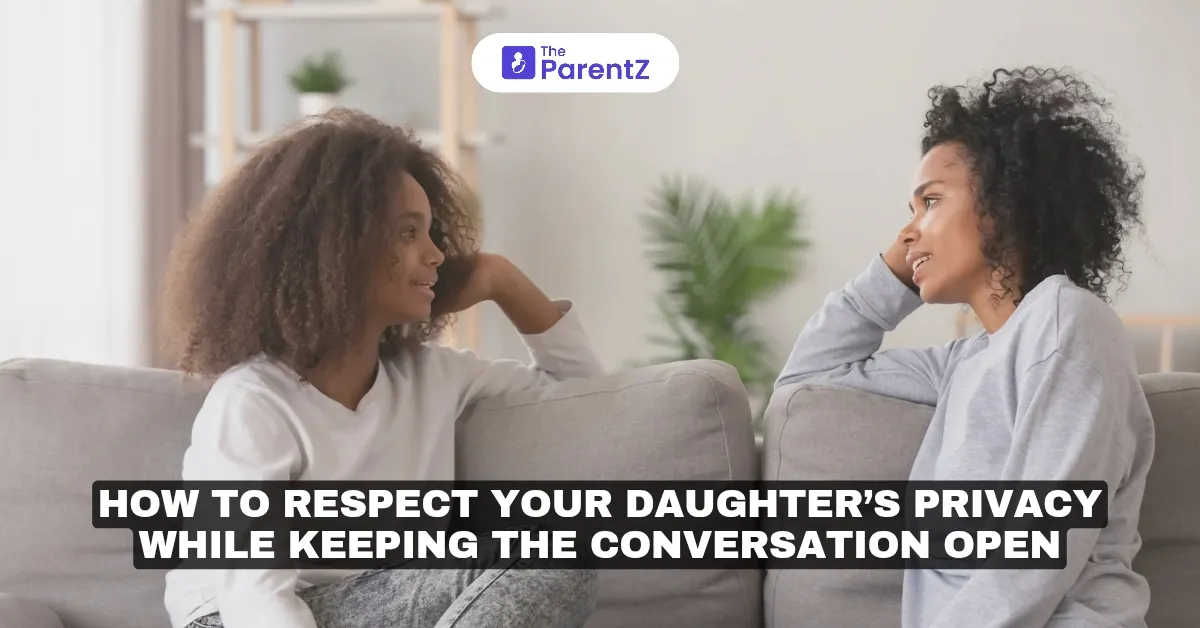Puberty is a big transition, and your daughter might start valuing her privacy more than ever. While you want to be there for her, you also don’t want to overstep. How do you strike a balance between giving her space and keeping the conversation open? It’s all about creating a safe, judgment-free environment where she knows she can talk to you anytime.
Why Privacy Matters During Puberty?
As your daughter grows, she’s learning to understand her body, emotions, and personal boundaries. She may feel embarrassed discussing sensitive topics or might prefer to figure things out on her own. Respecting her privacy helps her develop confidence and independence while knowing she can turn to you when she needs support.
How to Keep the Conversation Open While Respecting Privacy?
1. Normalise the Conversation
• Talk about periods, body changes, and emotions in a casual, matter-of-fact way instead of making it a big deal.
• Share your own experiences (if you’re comfortable) to show that it’s normal and nothing to be ashamed of.
• Use books, articles, or age-appropriate videos to introduce topics if she seems hesitant to talk.
2. Let Her Lead the Conversation
• Instead of bombarding her with questions, let her decide when and how much she wants to share.
• If she brings up a topic, listen without judgment and avoid interrupting.
• If she doesn’t seem ready to talk, leave the door open by saying, “I’m here whenever you want to chat.”
3. Give Her Private Space for Period Care
• Make sure she has easy access to pads, tampons, or menstrual cups in the bathroom.
• Let her handle her own period hygiene without hovering or checking in too much.
• If she’s nervous about buying period products, offer to go shopping together but let her choose what she’s comfortable with.
4. Respect Her Boundaries While Offering Support
• If she wants to talk to a doctor, teacher, or older sibling instead of you, that’s okay! Encourage her to seek advice from a trusted adult.
• Don’t force her to share every detail—she may not be comfortable discussing certain things yet.
• If she seems withdrawn or upset, check in gently without pushing: “Hey, I’ve noticed you’ve been a little quiet. Anything on your mind?”
5. Make Conversations Private and Judgment-Free
• Avoid discussing her period or body changes in front of others, even family members.
• Never tease or make jokes about puberty-related topics, even playfully—it might make her uncomfortable.
• Show that all feelings are valid by reassuring her that mood swings, cramps, and emotional ups and downs are normal.
6. Offer Guidance Without Controlling
• Instead of telling her what to do, offer suggestions: “Some girls find heating pads helpful for cramps. Want to try one?”
• If she’s struggling with period pain or irregular cycles, ask if she’d like to see a doctor rather than insisting on an appointment.
• Let her make her own decisions about products, hygiene routines, and comfort strategies—as long as she stays healthy and safe.
7. Be Available Without Being Overbearing
• Create an open, judgment-free environment so she feels comfortable coming to you.
• Keep your tone casual and relaxed when bringing up puberty topics—don’t make it feel like a formal “big talk.”
• If she seems embarrassed talking face-to-face, try texting or leaving a note letting her know you’re always there for her.
Final Thoughts
Balancing privacy and open communication can be tricky, but the key is respect and trust. By giving your daughter the space she needs while letting her know she can always turn to you, you’ll build a relationship where she feels safe discussing anything whether it’s periods, emotions, or other big life changes. The more comfortable she feels with you now, the more likely she’ll be to seek your advice as she grows!





Be the first one to comment on this story.